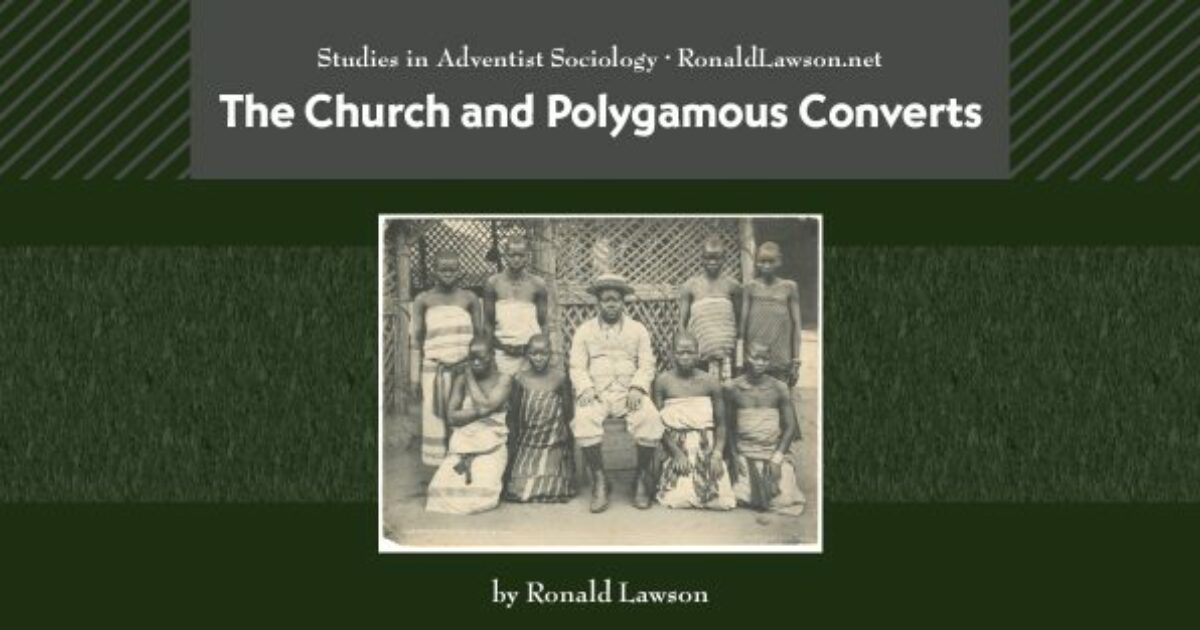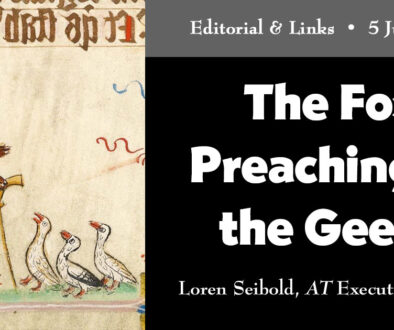Seventh-day Adventists and Polygamous Converts
by Ronald Lawson | 29 May 2018 |
“Church-Sponsored Injustice: The Seventh-day Adventist Church and Polygamous Converts” addresses how Adventists have dealt with polygamously married converts in Africa, where the practice has been widespread. The policy long followed by other mission churches was to refuse to baptize converts who were polygamously married unless the male put away all but the first wife. This policy was very cruel in its impact on the abandoned wives: since most African tribes are patrilineal in structure, which means that the wives leave their tribes and become part of that of their husband, and the children also belong to his tribe, if a wife is abandoned she is forced to leave her home and children, and is left without support. It has not been uncommon for such wives when “put away” to have to resort to prostituting themselves in order to survive.
The paper, which was first presented to an academic meeting of the Society for the Scientific Study of Religion in 1994, initially explores how the mission churches who preceded Adventists to Africa adopted such an antagonistic stance towards polygamous marriages in spite of their frequency among biblical characters in the Old Testament. Then, after Adventists first arrived there, it finds that Adventists were initially rather independent in the positions they adopted, even though this resulted in strong criticism from the other missions. However, as time passed, Adventists became more concerned about their reputation with the other missions, and they eventually changed their practice to follow that of the other missions. Once again the image of Adventism took precedence over the rights and protection of our women.
After the end of colonialism in Africa, and the subsequent switch from missionary to local leaders, the latter remained strongly committed to maintaining the strong rules that applied to polygamously married converts, even though such marriages were legal in all these countries, so that Adventists were in fact promoting divorce. Many of them explained to me when I asked about how they felt about the policy towards polygamous marriages, that the church had prevented them from marrying polygamously, and they were therefore determined to enforce the same rules on new converts. In the 1980s and 1990s, as younger pastors were receiving higher levels of education than their forebears, they often came to view the church policy as unjust and unchristian in its unloving impact, and urged that the policy be changed. They gained the support of Elder Neal Wilson, then president of the General Conference, who had seen the problems with the policy when it was applied to Muslims in Egypt, where he had ministered. Wilson subsequently brought the issue to Annual Council at the General Conference, and then to a special committee, hoping to achieve a change. However, after a long debate, no change was permitted, in part because the committee members were nervous about changing a rule the members were used to even though its impact was sinfully undesirable: committee members argued that if African members saw that one rule could be changed, it might make them feel that other rules, such as those regulating the way the Sabbath was to be kept, could also be changed.Thus it is that Adventists remain committed to a set of rules for polygamously married converts that they adopted in order to escape the criticism for other missions, even though the Anglican Church had voted in the 1980s to permit polygamously married converts to remain in those marriages as long as they did not add any more new wives. The rule has another wrinkle that makes it even more absurd: if the husband in a polygamous family refuses to cast out his extra wives (a position that many of the better educated Adventist ministers in Africa admire as supporting Christian principles), then the wives can be baptized since after all they have only one husband, but the man is not eligible for baptism, and therefore not for eternal life either, even though such men often attend Sabbath School and worship services regularly.
It is time Adventists changed these rules that hurt the people, even though such a change might make the members feel as a result that other rules taught by the church may also not be permanent nor from God.
You can read the full paper here.
 Ronald Lawson is a lifelong Seventh-day Adventist, and a sociologist studying urban conflicts and sectarian religions. He is retired from Queens College, CUNY, and now lives and works in Asheville, NC.
Ronald Lawson is a lifelong Seventh-day Adventist, and a sociologist studying urban conflicts and sectarian religions. He is retired from Queens College, CUNY, and now lives and works in Asheville, NC.




